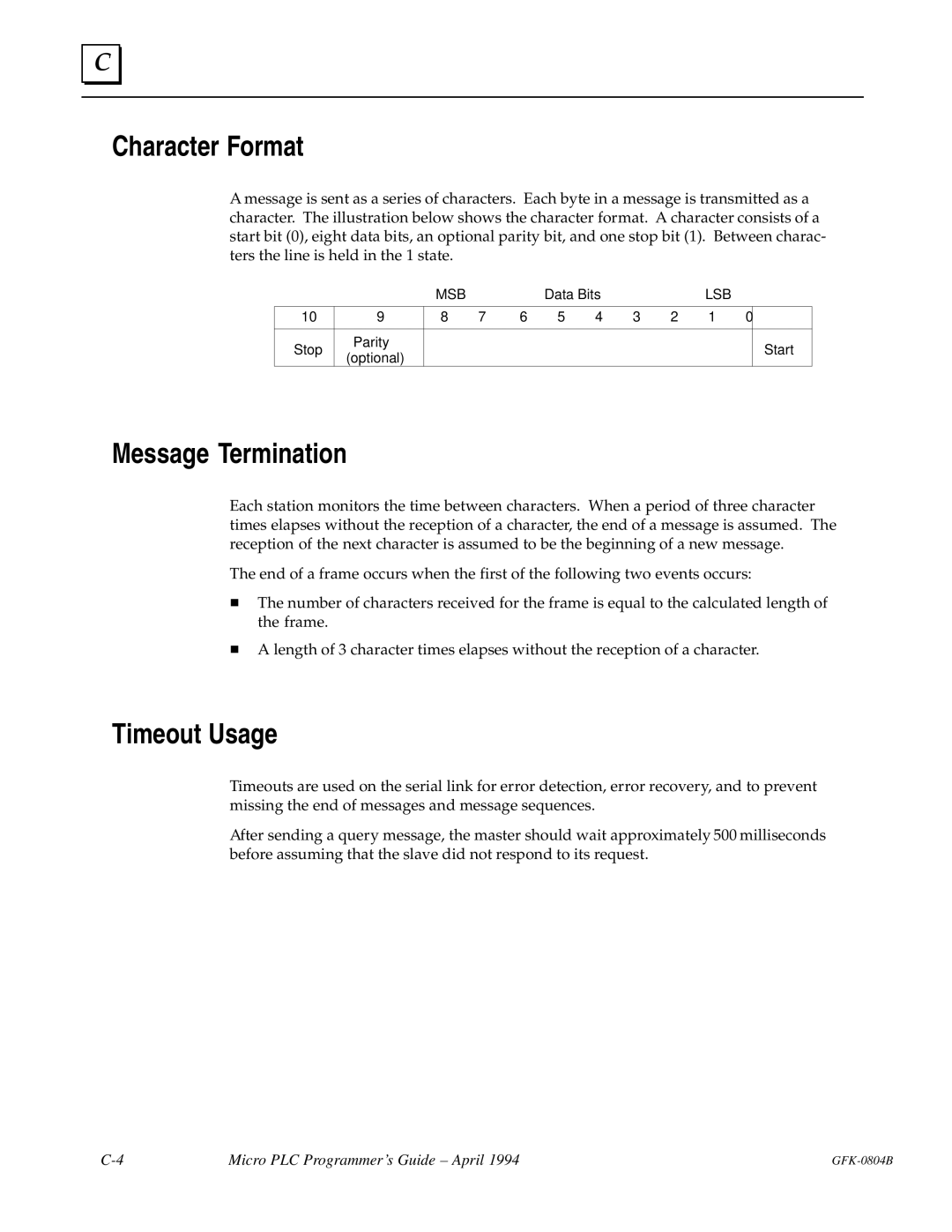C |
Character Format
A message is sent as a series of characters. Each byte in a message is transmitted as a character. The illustration below shows the character format. A character consists of a start bit (0), eight data bits, an optional parity bit, and one stop bit (1). Between charac- ters the line is held in the 1 state.
|
| MSB |
|
| Data Bits |
|
| LSB |
|
| |
10 | 9 | 8 | 7 | 6 | 5 | 4 | 3 | 2 | 1 | 0 |
|
|
|
|
|
|
|
|
|
|
|
|
|
Stop | Parity |
|
|
|
|
|
|
|
|
| Start |
(optional) |
|
|
|
|
|
|
|
|
| ||
|
|
|
|
|
|
|
|
|
|
| |
Message Termination
Each station monitors the time between characters. When a period of three character times elapses without the reception of a character, the end of a message is assumed. The reception of the next character is assumed to be the beginning of a new message.
The end of a frame occurs when the first of the following two events occurs:
HThe number of characters received for the frame is equal to the calculated length of the frame.
HA length of 3 character times elapses without the reception of a character.
Timeout Usage
Timeouts are used on the serial link for error detection, error recovery, and to prevent missing the end of messages and message sequences.
After sending a query message, the master should wait approximately 500 milliseconds before assuming that the slave did not respond to its request.
Micro PLC Programmer's Guide ± April 1994 |
